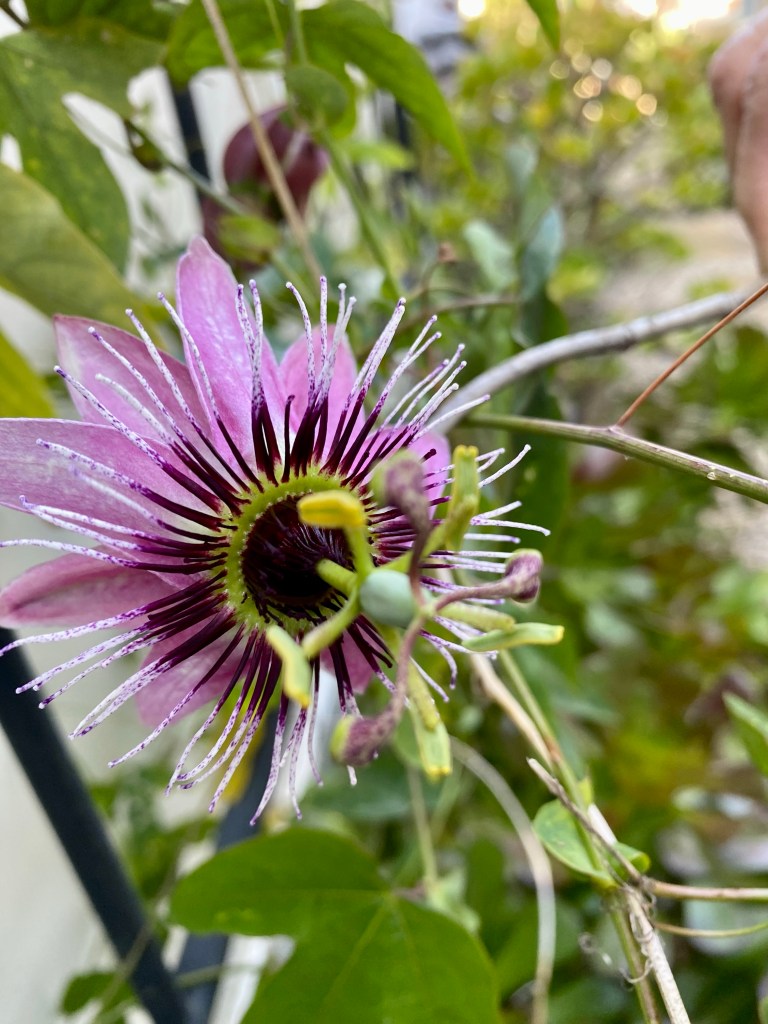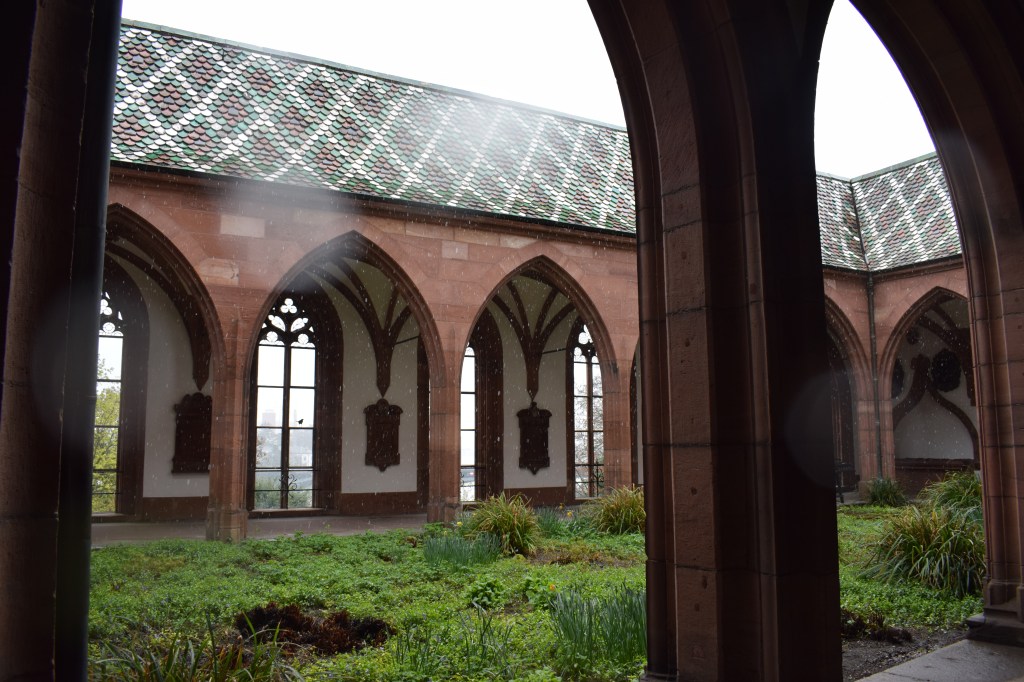As September waned, our New England garden stood weed-filled and sad with neglect. Late in the third trimester with my second child, I lacked the energy to keep up with the harvest. Tangled tomato vines sagged with the remaining green fruit born too late to ripen. The green beans were all gone, overcome by pests. Two or three obstinate zucchini vines managed to survive the onslaught of cutworms, and surprisingly were still yielding squash. Carrot tops were ankle deep amid encroaching Johnson grass.
And then there were the two rows of crowder peas, sprung hearty and strong from the my grandmother’s seeds, handed down summer after summer from some unknown beginning in the warm, Oklahoma earth two generations ago, the soil of my home state. Now, the remaining pods were dried on the vines, rattling in the breeze, waiting to be picked, shelled, and faithfully saved for next year’s planting.
My due date was approaching; urgency set in.
“We have to harvest and till the garden,” I told my husband. “Once the baby comes, there will be no time, and if we leave it like that through the snow, it will just be a mess in the spring.” We agreed to tackle the chore the next weekend.
On Saturday—harvest day—I awoke in the predawn quiet to a dull, tugging ache, little more than a cramp. A clear knowledge pierced my hazy sleepiness: Harvest day would be a birthday.
Careful not to wake Bill and four-year-old Katie, I tiptoed into the kitchen for tea and toast. An hour later, Bill wandered in looking for coffee and found me at the table. “You’re up early. Couldn’t sleep?”
“I think we’re going to have a baby today.”
“Really! Now? Should we go?”
“Slow down,” I laughed. “It’s early. We’ve got lots of time, and besides, we have to get that garden in!”
Five years before, carried helplessly like a seed on the winds of passion, I had quit my job in Memphis to resettle with Bill in Boston, his hometown. For him, the move was a homecoming. His New England roots were deep, and he thrived. No so for me. My south-southwestern sensibilities struggled to take root in Boston’s fast-paced, abrupt social milieu. Drivers leaned out of their car windows to scream at one another; clerks were surly and rude; and the timid were left standing on the subway platform to wait for the next train. I hated having to jockey for position in every queue and feared the white-knuckled game of chicken required to navigate the traffic circles. How I longed for a friendly smile and a syrupy “thank ya, sugah” at the corner store!
But once Katie came along, there was no going back. Our family was planted. I would adapt, but Bill and I had a pact: Every year I would need to cultivate my spirit with a trip home to Oklahoma to see family and friends. An infusion of the familiar, a strengthening of ties, and a reconnection to my heritage were the essential elements for my thriving in a new soil. Even more, our kids would know they were a grafting of two places, two families. What they drew from their New England birthplace would be met with some experience from the midlands.
After two years, we bought a house in Hanover, a small town on the South Shore, established as Plymouth plantation pilgrims pressed up the North River into the wilderness. Away from Boston’s urban rush, folks were friendlier, or perhaps just nosier and more likely to notice a newcomer. Although the townies could be clannish, they were not beyond being charmed by a stranger.
The first summer we put up a wooden stockade fence in the side yard, enclosing the garden plot and Katie’s swing set from the street and neighbor’s yard. The tall fence gave the existing raspberry canes a backbone. A lower picket fence separated the garden from the driveway and opened with a gate next to the garage.
A house, a yard, a garden—our own safe little world.
Katie started preschool, and attracted playmates whose mothers became my friends. I joined the Congregational Church, smack dab in the town center and backing up to an ancient cemetery where lichen-covered gravestones recorded sturdy English names—Winslow and Whiting, Stetson, Stoddard, and Studley, Tilden and Tubbs, Curtis, Clark, and Crocker—names repeated everywhere in street names, parks, schools, and businesses, covering the town like English ivy. Slowly, I wedged my way through the cracks and crevices of the established order, straining for a foothold, unashamedly using my child to gain entry into women’s friendship networks.
The next spring, Bill reroofed and painted our long-neglected house, and then drew a crowd of curious advice-laden neighbors when he and his brothers set upon our yard’s encroaching maple trees with chainsaws. We rented a rototiller to turn the grass-choked garden plot and carried home tips along with supplies from Sylvester’s Feed-and-Seed: Be sure to wait until Memorial Day to put in tomatoes; a paper cup placed around the squash plants will deter the cutworms.
New England gardeners planted radishes, lettuce, and peas in the spring, tomatoes, zucchini, corn, and pole beans in the summer. But the season was much too short for okra, and no one had ever heard of crowder peas.
Persuaded that birth was not imminent, the three of us were in the garden by 9:30 a.m., the mild Indian summer sunshine warming our backs. Katie and Bill started with the tomatoes, sorting the fruit that might yet be useful, and throwing rest in the mulch pile. I took the turning fork and headed for the carrots.
The cramping in my belly seemed to ease as I stepped down to send the turning fork deep into the brown earth, and bent to heave the soil aside. A mass of small, twisted, truncated carrots emerged. Clearly, carrots had been a mistake: Despite their apparent valiant efforts to grow around the abundant rocks, most were worthless.
Some soil defeats the plant.
That previous summer—the first in our own place—I had planted a New England garden, but when we made our annual Oklahoma trip, I visited Gram, the seed-saver. We walked out under the pecan tree, through the arbor that parted the crepe myrtles and iris beds, to her vegetable garden. “I’m glad you’ve got a place for a garden up there in Mass-a-CHEW-sets,” Gram said, sucking on the syllables like they were some exotic fruit. “I’ll give you some seeds to take with you for next year.”
In her garage, Gram found a mason jar of dried crowder peas, poured some into an envelope, and sealed it shut with a lick and a smack. “Here you go, Princess, a taste of home.” I accepted the treasure gratefully, feeling like Jack with his fabled magic beans.
The peas did well in the rocky Massachusetts soil, and the pests hadn’t yet acquired a taste for them. By early August, we enjoyed at least one good harvest of these meaty legumes, cooked up with a hunk of salt pork, indeed, a savory taste of home. Every bite exploded with childhood memories—scaling Gram’s big pecan tree with my cousins and brothers to claim our favorite branches where we would spy on our summer kingdom; Gram’s knarled, sun-browned hands picking and shelling crowder peas, and then pulling me close on her lap as she sang Sunday school songs; the hot, sticky summer nights thick with cicada songs as I lay on the daybed under the open window in Gram and Granddad’s room, waiting for the distance mournful whistle of the freight trains.
Would seeds saved from this Yankee-born crop yield the same intense visions, I wondered, or would time and place dilute the peas’ content and complexity. Could these humble field peas take hold in my children’s memories and produce a new harvest of precious scenes to nourish their lives?
The sun was almost hot now, casting off remnants of the summer passed. Finished with the tomatoes, Bill strode toward the crowder peas.
“Do you want me to get rid of these beans?” he asked.
“No, we have to pick the pods off. I have to save the seeds for next year.”
Bill looked impatient, wanting to get on with it. “You pull them up and dump them here, and we’ll do the rest,” I offered.
Welcoming the chance to get off my feet, I sat with Katie on the grass beside the garden and stripped the dried pods off the vines as Bill pulled them up and brought them to us. We filled her little wagon, and then dumped them into a paper grocery bag.
By 1 p.m. I was spent. Bill took Katie with him in the pickup truck to do errands—a visit to the town library, a stop at the dump to drop off the trash—and I lay down for a nap.
After supper as twilight swaddled our little house, we sat at the kitchen table shelling the crowder peas into a bowl, listening to the ping, ping as each struck the glass. Labor pains were more organized now, and it was hard for me to sit still. I scooped the seeds into a clean mason jar, sealed the lid, and stored them carefully in the cellar where this progeny would await for our stony garden plot once more to warm and welcome them.
The seeds were saved.
Harvest makes time to review and plot out the next year’s planting as the gardener learns to match her choices to the idiosyncrasies of soil and sun. The squash will do better there, the tomatoes here. Already I knew where I’d plant the okra—a variety developed specifically for the northern climate—that I’d been overjoyed to discover in Johnny’s Select Seeds catalog: that sunniest spot outside the picket fence in full view of the road. Won’t the neighbors be intrigued!
On Sunday morning, eight hours later, baby Beth was born. She was a perfect beauty. Looking into her moon-shaped face, we saw Watsons and Keetons; Johnstons and Ewings; Cunninghams and Longs—a hearty miracle sprung from the bits of this-and-that, saved, transformed, and passed along, the old emerging all so completely new.
Some harvests come slowly, waiting for fullness of time.


